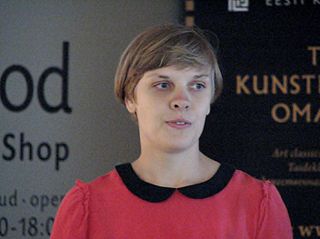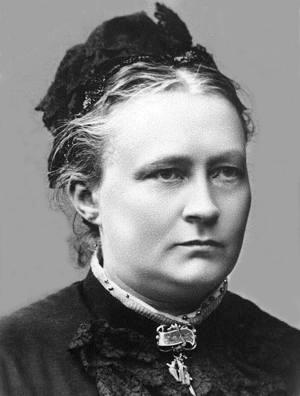| Gender | Female |
|---|---|
| Origin | |
| Meaning | pearl |
| Other names | |
| Alternative spelling | Grethe |
| Derived | Margarethe |
| Related names | Greta, Gretchen |
Grete or Grethe is a feminine given name, a derivate of Margaret. It is most often used in Scandinavia (not including Sweden), Estonia, and German-speaking Europe.
Gerda is a feminine given name. Notable people with the name include:
Astrid is a given name of Scandinavian origin, a modern form of the name Ástríðr. Derived from the Old Norse Ássfriðr, a compound name composed of the elements áss and fríðr.
Berger is a surname in both German and French, although there is no etymological connection between the names in the two languages. The French surname is an occupational name for a shepherd, from Old French bergier. The German surname derives from the word Berg, the word for "mountain" or "hill", and means "a resident on a mountain or hill", or someone from a toponym Berg, derived from the same. The pronunciation of the English name may sometimes be BUR-jər following the French phonetics French pronunciation:[bɛʁ.ʒe]. Notable people with this surname include:
Inge is a given name in various Germanic language-speaking cultures. In Swedish and Norwegian, it is mostly used as a masculine, but less often also as a feminine name, sometimes as a short form of Ingeborg, while in Danish, Estonian, Frisian, German and Dutch it is exclusively feminine. The feminine name has the variant Inga.
Fischer is a German occupational surname, meaning fisherman. The name Fischer is the fourth most common German surname.cn}} The English version is Fisher.
Helga is a female name, used mainly in Scandinavia, German-speaking countries and the Low Countries. The name was in use in England before the Norman Conquest, but appears to have died out afterwards. It was re-introduced to English-speaking nations in the 20th century from Germany, the Netherlands, and the Nordic countries. Scandinavian male equivalent is Helge, or Helgi. Eastern Slavic names Olga (Ольга) and Oleg (Олег) are derived from it.
Signe or Signy is a feminine given name used in the Nordic and Baltic countries, derived from Old Norse sigr (victory) and nýr (new), which may refer to:
Gunnar is a male first name of Nordic origin. The name Gunnar means fighter, soldier, and attacker, but mostly is referred to by the Viking saying which means Brave and Bold warrior. King Gunnar was a prominent king of medieval literature such as the Middle High German epic poem, the Nibelungenlied, where King Gunnar and Queen Brynhildr hold their court at Worms. Gunder is a nordic variant, Günther is the modern German variant, and Gonario is the Italian version. Some people with the name Gunnar include:
Katrin is a feminine given name. It is a German and Swedish contracted form of Katherine. Katrin may refer to:
Hans is a Germanic male given name in Afrikaans, Danish, Dutch, Estonian, Faroese, German, Norwegian, Icelandic and Swedish-speaking populations. It was originally short for Johannes (John), but is now also recognized as a name in its own right for official purposes. The earliest documented usage was in 1356 in Sweden, 1360 in Norway, and the 14th century in Denmark.
Margarete is a German feminine given name. It is derived from Ancient Greek margarites (μαργαρίτης), meaning "the pearl". Via the Latin margarita, it arrived in the German sprachraum. Related names in English include Daisy, Greta, Gretchen, Madge, Mae, Mag, Magee, Magdy, Magga, Maggie, Maggy, Maidie, Maisie, Marg, Margaret, Marguerite, Margarita, Margareta, Margarida, Marge, Margery, Marget, Margo, Margot, Marjorie, Marjory, Matge, May, Meg, Megan, Mairead, Mer, Meta, Rita, Molly, Peg and Peggy.

Anna is a feminine given name, the Latin form of the Greek: Ἄννα and the Hebrew name Hannah, meaning "favour" or "grace".
Mariya is a variation of the feminine given name Maria.
Ida is a feminine given name found in Europe and North America. It is popular in Scandinavian countries, where it is pronounced Ee-da.
August is both a given name and surname developed from the Latin, Augustus. Derived from the Latin word augere, meaning "to increase", Augustus had the meaning "esteemed" or "venerable" and was a title given to Roman emperors.
Heidi is a Germanic feminine given name. It became an internationally popular first name as a direct result of the Swiss children's book, Heidi. It can sometimes be an affectionate diminutive of the name Adelheid, which means "nobility" or, more loosely, "of noble birth". The name began to be used in the English-speaking world shortly after the 1937 Shirley Temple movie adaptation of the novel. In German-speaking countries, Heidi is also used as a diminutive for other names, such as Heidrun, Heidelinde, and Heidemarie.

Margit is a feminine given name, a version of Margaret.
Trude is a Germanic Old Norse feminine given name meaning "strength". The name is now most commonly found in Germany and German-speaking countries and in Norway. It is sometimes used as a diminutive of the given names Gertrude and Gertrud.

Minna is a feminine name of Germanic origin, meaning courtly love, and is also a diminutive of Wilhelmina. It is now particularly known in Finland and Sweden.
The name Greta is derived from the name Margareta, which comes from the Greek word margarites or "pearl".